Ben Platt, Jeremy Pope, Jenna Lyons, and More on the Queer Art That Made Them

Art by Chris Panicker
In the last few years, queer art has been everywhere, from streaming blockbusters like Heartstopper and The White Lotus to the chart dominance of stars like Billie Eilish and Lil Nas X. But even relatively recently, that wasn’t always the case, with art by queer creators often pushed to the margins and excluded from the wider cultural conversation. Despite—or because of—those odds, when the rare work did cut through, it had the potential to be world-shifting, a lighthouse of inspiration for generations of queer kids in the dark.
In the first of two installments, GQ talks to some of this generation’s most exciting queer creatives about the art that changed their lives, paying tribute to the generations of artists who came before and paved the way.
Glenn Martens of Diesel on the fashion designers John Galliano and Thierry Mugler

“They're the first people I saw fashion through. The couture collections of Mugler and Galliano were quite bombastic. That’s one of the reasons why I fell in love with fashion, specifically, for the simple reason that they managed to create collections that were not guided by merchandising or products. They were guided by the dream, the beauty, and the magic of fashion. So that is definitely something that I try to [do] as much as possible.
I remember there was one [Mugler] couture look in one of these magazines—Karen Mulder, the top Dutch model, and she was wearing this full beetle dress with feathers. I was probably younger than 12 and completely obsessed with it because she looked like a Disney villain. I was like, “Wow, this can be reality. We're not supposed to only see that in a cartoon movie.”
Glenn Martens is the creative director of Y/Project and Diesel. Diesel recently partnered with Tom of Finland Foundation on their third annual Pride collaboration, coinciding with the Foundation’s 40th anniversary.
Jeremy Pope on playwright and screenwriter Tarell Alvin McCraney

“Tarell Alvin McCraney, who wrote Choir Boy, my first job, and [the Barry Jenkins film] Moonlight—that’s my person. I remember moving to New York and my first audition was for him. He was the first [Black queer] person I remember seeing just so calm and confident in who and what he was, in a way that was just so beautiful. I remember just being like, ‘Oh, I want to feel that.’ I wasn't out at the time. I wanted to feel confident and comfortable in my body. He was a person that was just so instrumental in my life at 19. He was the first person where [a life as a Black queer person] felt accessible, and it felt tangible. And also, he had picked me to be in the show. It was like this embrace of, ‘Please, come. Please, be a part of this.’ That felt affirming in so many ways.”
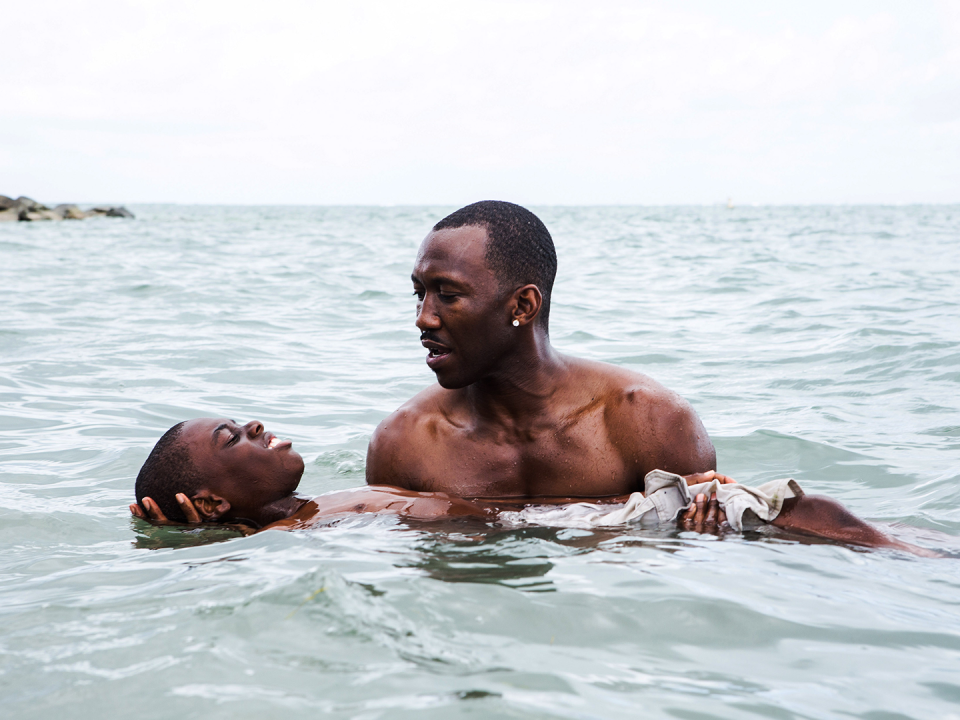
The star of the A24 film The Inspection and Netflix’s Hollywood has conquered stage and screen in just a few short years, earning Tony, Emmy, Grammy and Golden Globe nominations along the way. Next, he’s releasing his first musical body of work—the EP LAST NAME: POPE.
Jenna Lyons on artist Antonio Lopez, comedian Sandra Bernhard and designer Isaac Mizrahi

“Antonio's Girls is a book that [the artist Antonio Lopez] had, and it was a love note to all of these women that were in his life. I had grown up in California, seeing a very Baywatch version of what beauty looked like. I remember when I was in seventh grade, I got this book from my art teacher. And she's like, "You might like this guy, Antonio Lopez." And I just fell in love with his work. Through reading the book, I found these women in his life: Jerry Hall, Tina Chow, Grace Jones, Marisa Berenson. And it was special and unique because all those women were not typically beautiful in the American standards that I was seeing or being shown, whether it be in magazines or socially.
It was just a powerful thing to see at such a young age because I got excited and thought like, "Oh, there's people in the world who appreciate things that don't look like Pamela Anderson." And while I adore Pamela Anderson and think she's awesome, I couldn't be her. And I didn't have any connection to looking like that. So, it really changed everything for me in terms of a lens of beauty.
I think what I was always fascinated with was that Antonio Lopez had his women that he fed off of. And they loved each other, and he revered them. And there was this kind of respect and adoration for their uniqueness. And I think Isaac Mizrahi and Sandra Bernhard were a little bit of that, too. Where it was like he appreciated her quirk and her outspokenness and her not traditional beauty and made her look and feel beautiful. I always appreciate the things where it's not the most obvious, or you see the light in something that not everyone sees.”
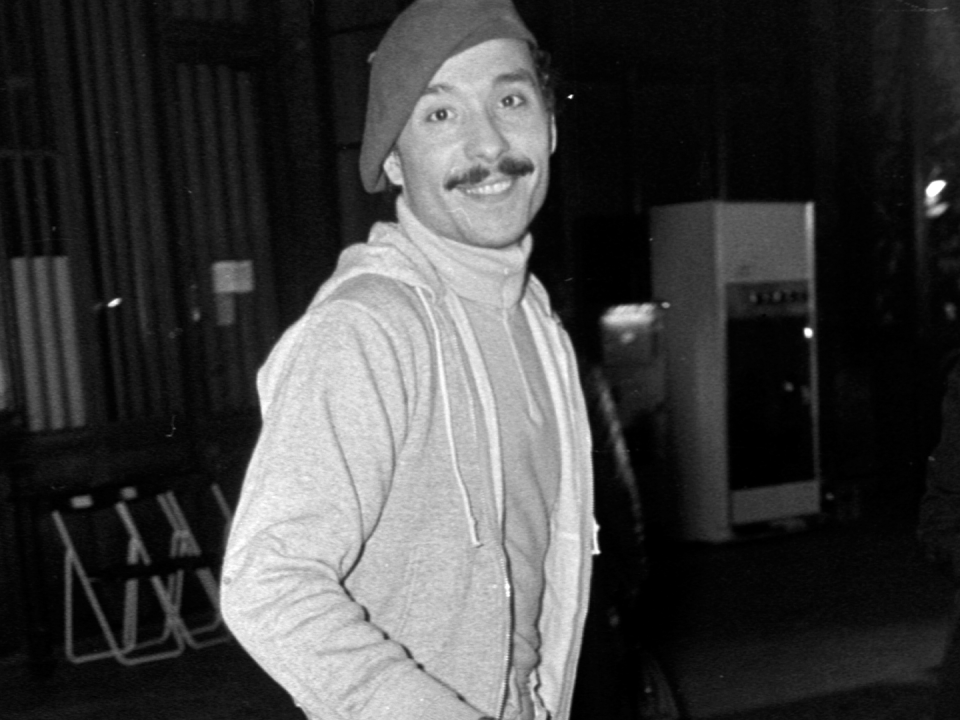
Jenna Lyons is the Designer, CEO, and Founder of LoveSeen and stars on the Real Housewives of New York City.
Ben Platt on the singer-songwriters Sam Smith and Elton John
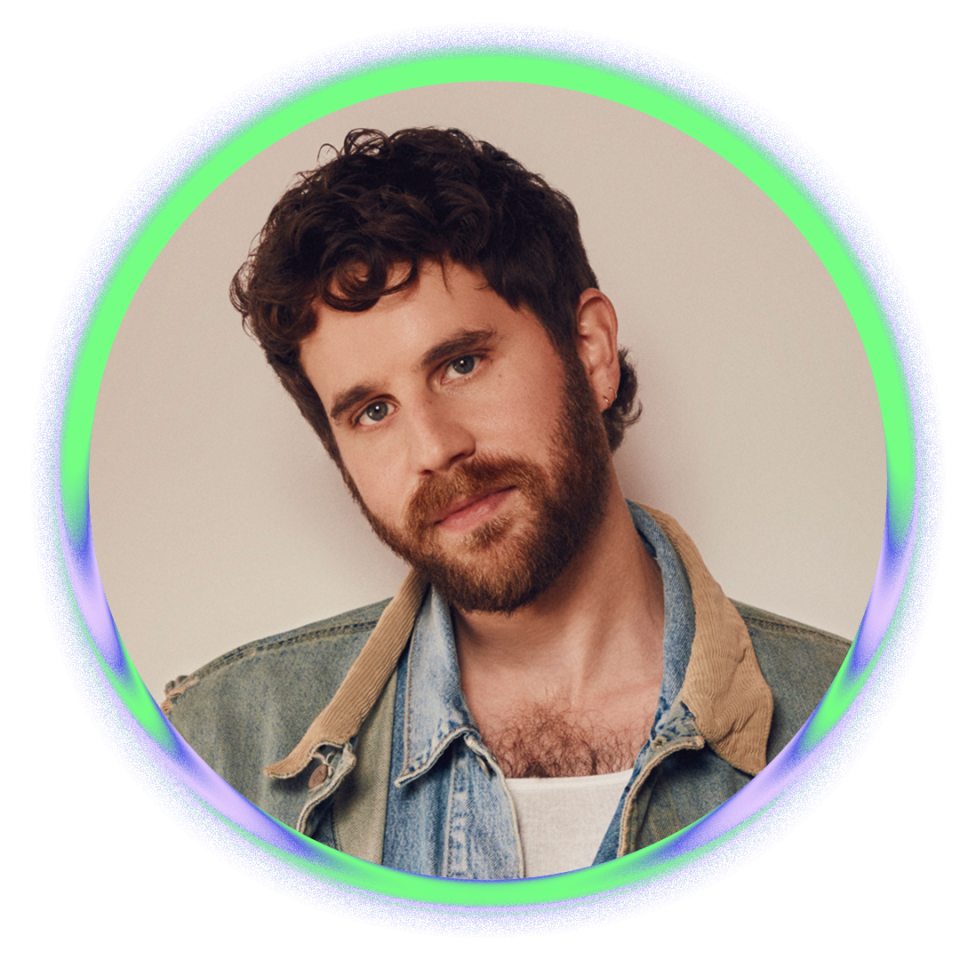
“As a songwriter, in terms of writing from my own perspective, Sam Smith was really huge for me. I think for there to be a popular artist coming up when I was still in high school, who had songs like ‘Leave Your Lover’ with pronouns [like] he/him in them, and singing very specifically about queer love, was just amazing for me, and really unlocked a lot of inspiration. I very much walk in the footsteps of that beautiful album and all of their work.
Elton John, obviously, is [an inspiration] in terms of embracing loud flamboyance and queerness in a really cool, stylish, popular kind of way. He was such a trailblazer and did a lot of things first. My favorite [song of his] is ‘Take Me To The Pilot’—which I know is a slightly random one, but I sang it on my first tour and in my Radio City Music Hall special because I just love that song so much.”
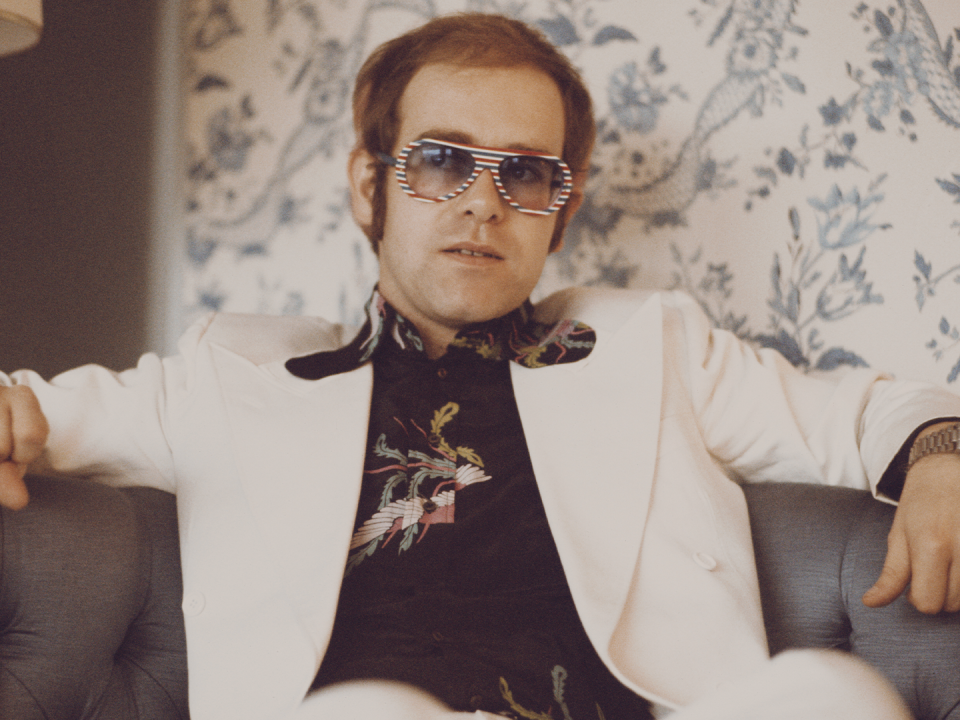
The Tony and Emmy-winning star of Dear Evan Hansen and the Netflix series The Politician recently wrapped a blockbuster residency at the Palace Theatre on Broadway. His latest album Honeymind is out now.
Carrie Brownstein of Sleater-Kinney on the film Incredibly True Adventures of Two Girls in Love and the podcast Las Culturistas
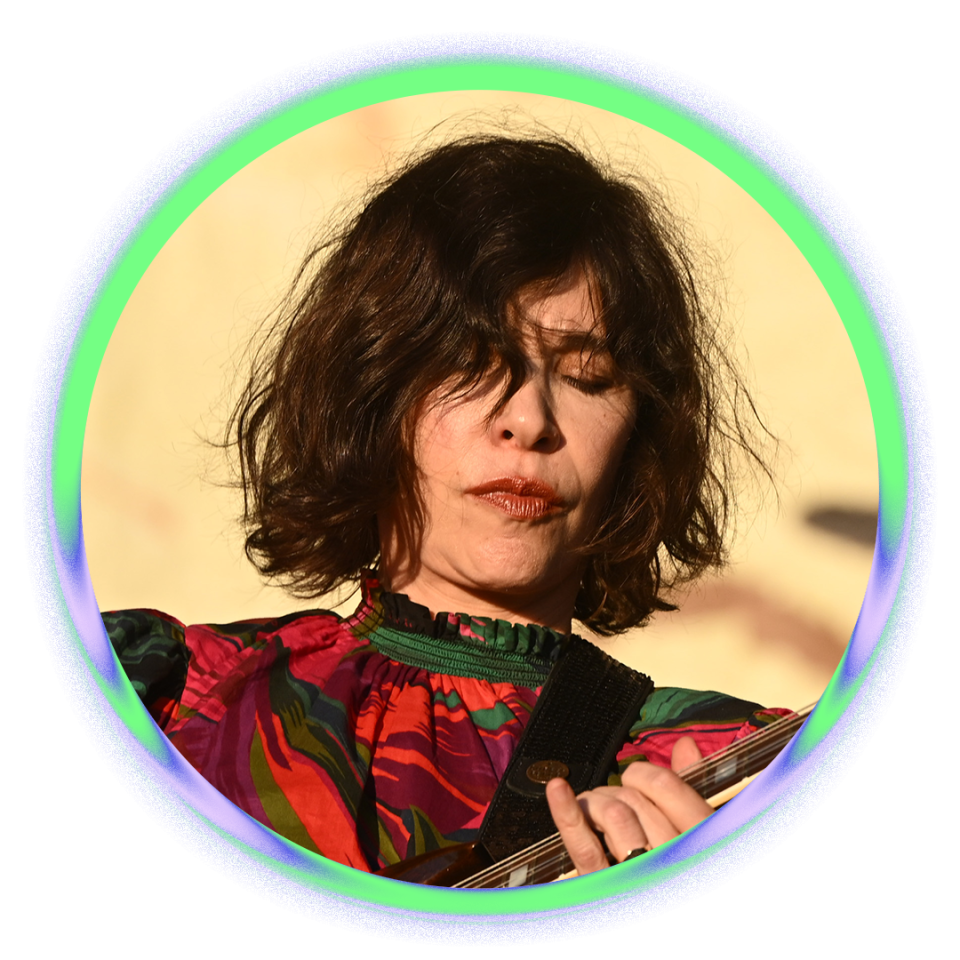
“[The 1995 coming-of-age film] Incredibly True Adventures of Two Girls in Love. It was shocking and revelatory to see a movie that followed all the classic tropes of a coming-of-age love story starring two young actresses instead of a male and female. I just loved how it was unapologetically normal and conventional in its storytelling—except that it just replaced the heterosexual dynamic with a gay one or with a queer one. And that was amazing. I felt just sort of ecstatic and then I realized, ‘Oh, this is also embarrassing at the same time. Now we have to reckon with versions of ourselves on screen.’ Representation was so interesting early on because it had to stand for everything and everyone. And the luxury, of course, of being less marginalized is that you get to see many versions of who you are. And there's versions of people like you on screen that you don't like, and they don't all have to be model citizens. But those early movies, yeah, they had to represent all of us for better or worse.
But I would say that this film did a pretty good job of it. It's not two white girls, it holds up pretty well. It’s shockingly not too retrograde 30 years later.
I think what's actually great about right now is that there's so much representation that we've moved away from having to be a model minority. And so I love something like Las Culturistas with Bowen Yang and Matt Rogers, because it's both unapologetically fan-oriented and pop culture-oriented, and it's largely positive. But it's also not afraid to dissect and be critical of queer or queer-coded culture or people who are hopping on that bandwagon. It has a little bit of snark and to just make it really pleasing and fun, and it's so smart, and I'm glad that that exists. I'm glad it can just be fun and also a little less reverential.”
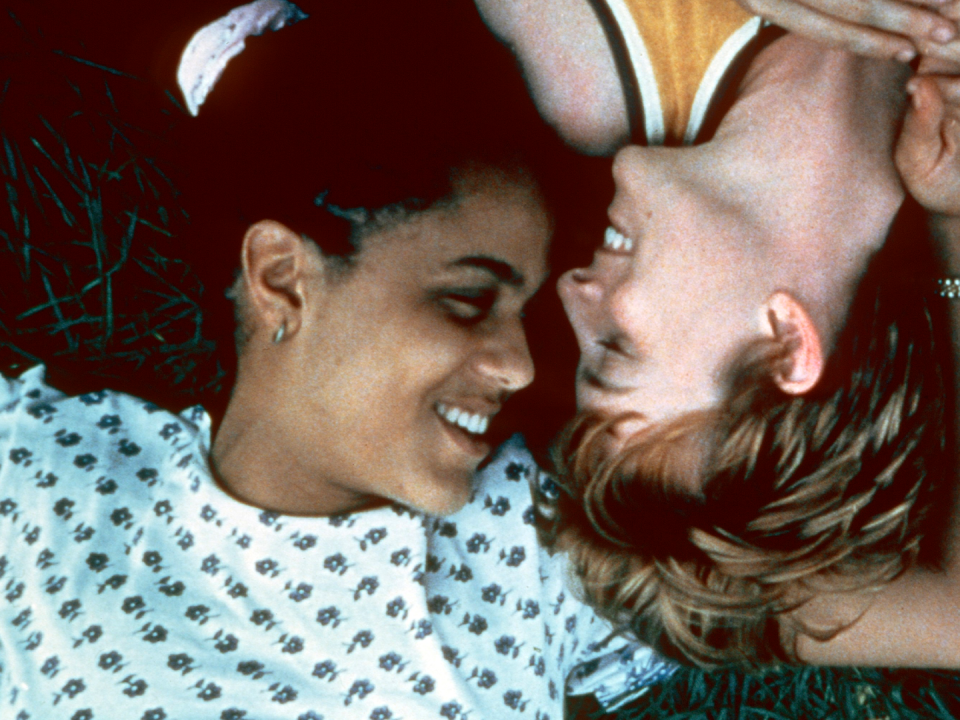
Carrie Brownstein is a cofounding member of the legendary punk rock band Sleater-Kinney. Outside of music, she is a writer, actress, and showrunner/creator of hits like Portlandia.
Perfume Genius on the rock acts Liz Phair and Sleater Kinney

“I think the first time things opened up for me was when I heard Liz Phair and got her record Exile in Guyville. She sings explicitly and confidently about sex—and not just sex, but all kinds of things in a brazen way, and in a way that I was unfamiliar with. I didn't know you could talk about those kinds of things, let alone sing about them with such a stare down. It blew things up for me and felt like a companion to what I needed and what I was thinking about. When you're gay, the thing that you're taught is the most shameful part about being gay is the sexual part. At least that's how it felt to me when I was young. I've always been obsessed with music and listened to it to soothe myself and to have a mirror, a companion, or a catalyst.
I've probably seen Sleater-Kinney the most out of any band. They sing very openly about love and being queer. It was angsty in a way that I was craving around then too: directional and defiant, but also thoughtful and smart. I think I wanted a lot of things at once. I wanted anger, but also confession and something tender, especially because when you're a teenager, you just have a million competing feelings. I hadn't been around any gay people. I had the concept that there were other gay people. The books I would read, and the shows on TV, a lot of them [had] gay people dying. These were living gay people who were thriving.”
Mike Hadreas is a Grammy-nominated musician and songwriter who performs under the name Perfume Genius. This summer, he will embark on the “Too Bright” tour in celebration of the 10-year anniversary of the album of the same name.
Geena Rocero on the director Pedro Almodovar and trans pageant divas in the Philippines
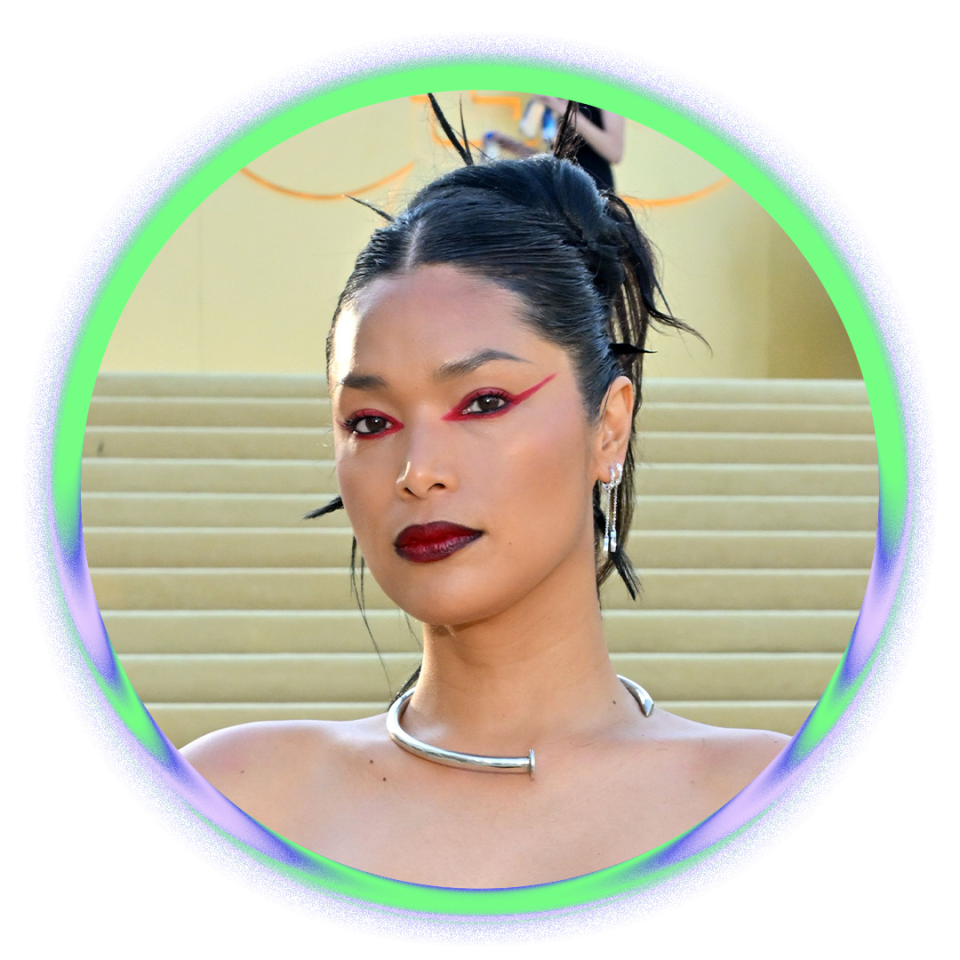
The trans pageant divas in the Philippines really made me who I am. I was 15 years old and I learned the art of making the most of things, the art of recreating your life, the art of existing. Those were my formative years—I joined different pageants, different types of pageants, from a pageant next to a rice field to a pageant in front of 30,000 people in a coliseum. And that’s still my reference now—the art of making it work in all aspects of life. The name of my production company is Street Pageant Productions, my way of paying tribute.
As a director, it’s Pedro Almodovar. I used his film High Heels as a reference for my directorial debut Caretakers. And when I watched Volver, my God, I was like, those women. We all grew up with that. Those stories are obviously Spanish, but [they also feel] very Filipino. It’s a similar culture: a [piece of] gossip that would [get retold as] a melodrama that becomes so campy, that's almost passed down as myth.
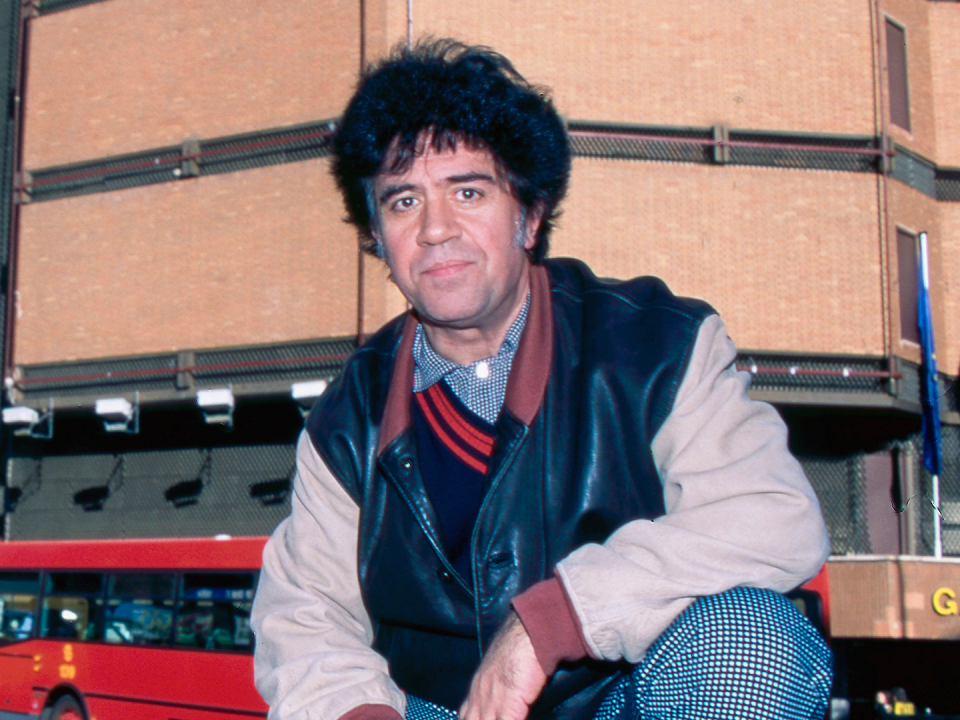
The fashion model and transgender advocate has recently become an Emmy-nominated documentary filmmaker and a bestselling author. Her acclaimed 2023 memoir Horse Barbie was released on paperback this month.
Justin Tranter on singer-songwriter Ani DiFranco and the film Priscilla, Queen of the Desert
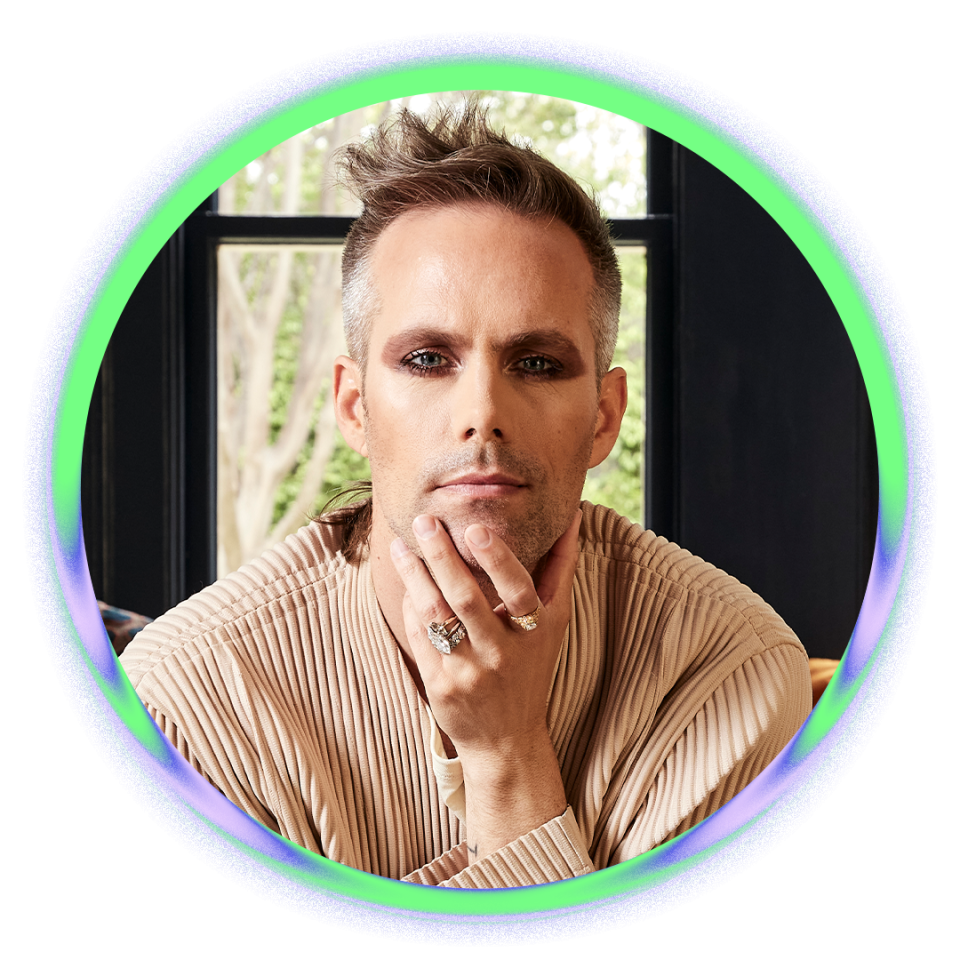
“I came out at 14 years old in 1994. Finding queer shit to listen to and watch was very hard in those days. Priscilla, Queen of the Desert, that movie was everything to me—I was beyond obsessed. Just to see gay people being fabulous and gay just meant a lot to me.
Ani DiFranco was just so inspiring to me as an openly queer person who was writing songs about being queer, always self-released with her own record label. She built her own empire while being punk as fuck and queer as fuck but all in folk music—which obviously is not a genre that is normally punk as fuck or queer as fuck. The first [album of hers] that I fell in love with was Dilate, a friend of mine gave it as a gift. The first song [on that album] ‘Untouchable Face’ is one of the best songs of all time. I think if you listen [to songs I’ve done], especially if you listen to ‘Bad Liar’ by Selena Gomez, you can really hear the Ani influence in the phrasing of those verses. Like, we didn't do anything wrong, but it's clear who we were listening to that week. You know what I mean? We were vibing.”
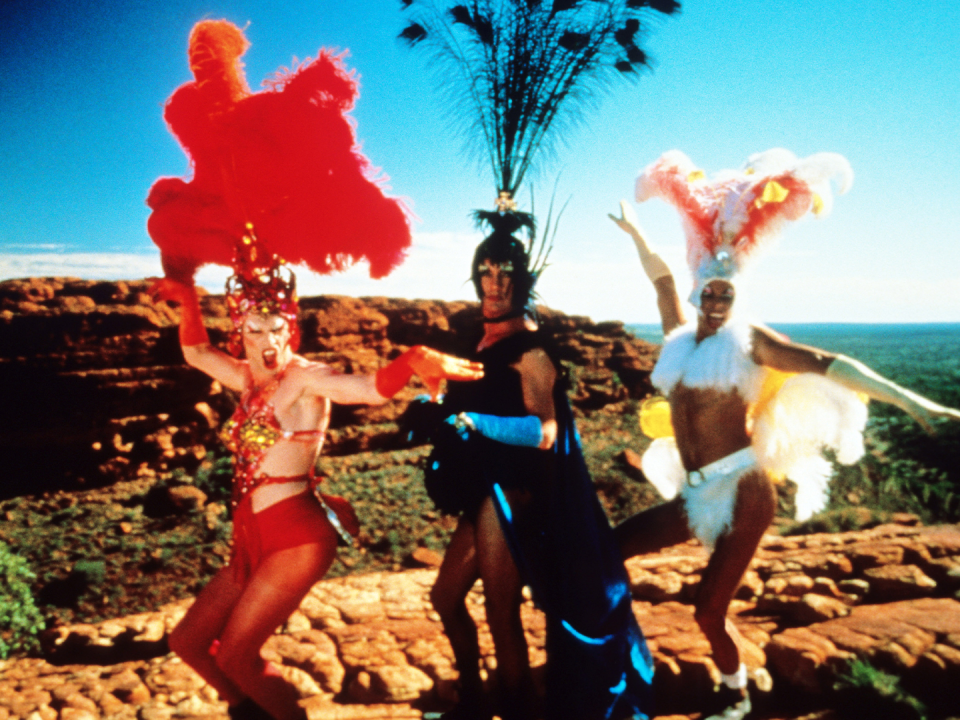
The Grammy-nominated songwriter has written hits for everyone from Chappell Roan to Halsey to Gwen Stefani. Recently, Tranter wrapped their term as a board member of GLAAD.
Matthew López on the Broadway musical Peter Pan

“Peter Pan, without question, is the most formative and influential work of art I’ve ever encountered in my life. It was the first theatre I ever saw in my life: I was four or five when my parents took me to see a production of Peter Pan the musical on Broadway. Up until that point, I had no understanding of what, really, storytelling was. I had no conception of what theatre was. I was brought to this big building, and sat in a seat, and I remember sitting in my dad’s lap because I couldn’t see over the heads of the people in front of me. I spent the entire thing on my dad’s lap. I just remember being entirely enthralled by what I was seeing.
The spectacle of it, that people were flying on stage, that they were flying over our heads … It really cemented, from the beginning, this idea that theatre was an event, that theatre was something that happens to you, rather than something that you passively take in. I think it really cemented my love of magic in storytelling.
The question is — and it’s a chicken and egg question — did it reveal my psyche to me, or did it create my psyche? I don’t know, because I was four years old. Either way, it was a pretty well-timed trip to the theatre for me in my life. While it’s hard to maybe discern Peter Pan in much of my work, I do sort of write about escape, and I do write about people divorced from themselves, the way Peter Pan is separated from his shadow. It was only half-unconscious that my character in The Inheritance is named Toby Michael Darling … So there’s something very, very fundamental and essential [about Peter Pan] to my psyche as a person, and as an artist.”
The Tony-winning writer and director is best known for writing the play The Inheritance and for directing the blockbuster streaming hit Red, White and Royal Blue. Up next, he’s working on the RWRB sequel.
Alexander Chee on Maurice, the E.M. Forster novel and the film adaptation by James Ivory, and the films Fame and Flashdance

“Something I'm thinking about a lot right now is the work of E. M. Forster and his novel, Maurice—which was turned into a film by Merchant Ivory famously so—which is often discussed as his first and only gay novel. I would say most people, if they know the novel, they know the film first. [I was] in college [when I saw it]. It felt like I was watching my life at the time on screen because I was in love with a friend who had said to me, ‘I love you too, but I can't be gay.’ I was like, ‘What do you mean? What do you mean you love me and you can't be gay?’ I found myself during COVID unable to read, and for some reason I turned to the audiobook of this novel, and that led me back into re-reading. It became like my path back into language in a strange way after that horrible abandonment.
Fame and Flashdance were important films to young me. Fame, partly because there's one queer character who is struggling with his own sexuality and his crush on a friend at the school, and gradually comes out of the closet in this very intense scene. It was shocking to me at the time to see someone just say all of that. Then there's Michael Anthony Ray, who gives this stunning performance as a very talented, very sexy dance student who is struggling with his literacy and seems like, his sexuality too—that seems like a subtext to the film. [There’s a scene where] he's just giving, it seems, almost like ballroom. And he's giving go-go boy. He's so self-possessed as he rocks on one leg with another leg in the air, sort of dangling his foot back and forth, like a lure. And Flashdance [because] the main character's named Alex, even if she's not a man—and I'm not going to say that she didn't have an influence on my own experiences as a go-go dancer in San Francisco.”
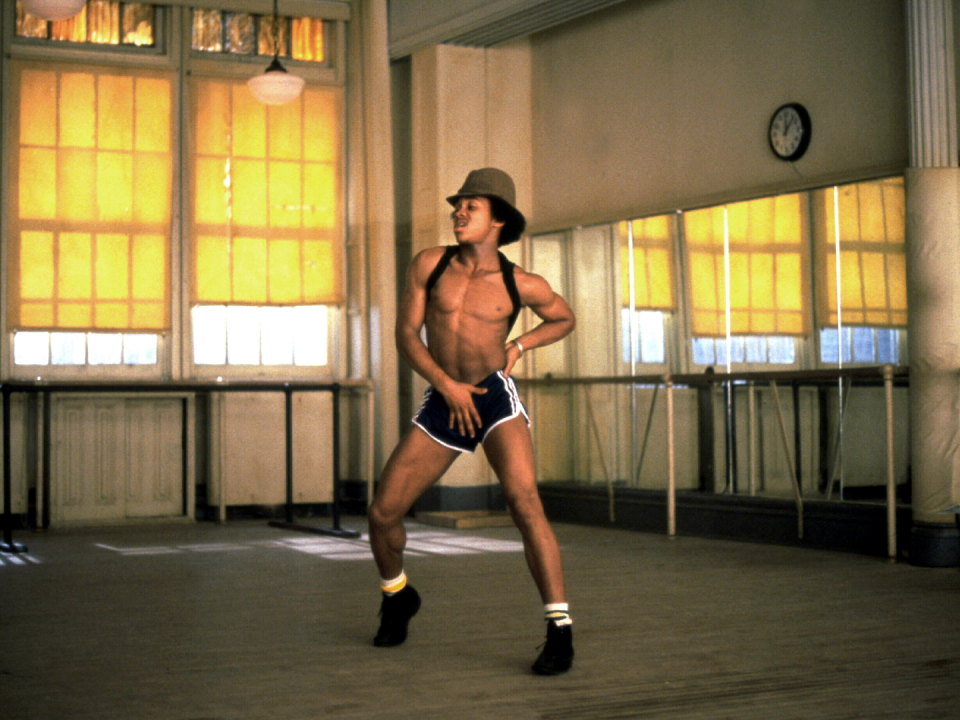
The acclaimed fiction writer and essayist is best known for the novels Edinburgh and The Queen of the Night, and his collection of essays How to Write an Autobiographical Novel.
Robbie Rogers on Tom Ford’s A Single Man, the gay kiss on Dawson’s Creek and the artist Hugh Steers

“Even before high school, I watched the gay kiss on Dawson's Creek—the first gay kiss between two men [on primetime TV]. I remember seeing that and being like, ‘Ooh this is so scary. Who's in the room? Why do I feel this way?’ That definitely was a moment in my life where I started to be like, ‘Oh, I'm different and maybe I'm more like these guys.’ Seeing these guys on television was really important for me as I look back at it.
And then living in England, playing soccer at the time, I came across A Single Man [by Tom Ford]. I watched it a million times. I was very closeted thinking that I would never have my own love story and Tom's direction, the script, everything about it really, really inspired me. I came out shortly after that. [A Single Man was] also the inspiration of, I want to someday be part of art that really moves people, in a way that it inspires them.
My husband and I collect a lot of art by gay artists and a lot that lived in New York City and were affected by the AIDS epidemic—Patrick Angus, Alvin Baltrop, [Robert] Mapplethorpe. I am a huge, huge fan of Hugh Steers. I find such beauty in the melancholy [of his work]. Sometimes, I just sit and have coffee and look at them because they're really important to me. It's a piece of history that I just don't want to lose. To go from being so afraid of who was in the room when I saw the first [gay] kiss on television to now celebrating and collecting gay art—my life has changed a lot.”

Rogers initially made headlines as the soccer player who became the first openly gay man to compete in a top North American professional sports league in 2013. Today, he is the producer behind the award-winning Showtime series Fellow Travelers and the Harry Styles-starring film My Policeman—both adaptations of literary works that Rogers says have been pivotal in his journey as a gay man.
Originally Appeared on GQ


